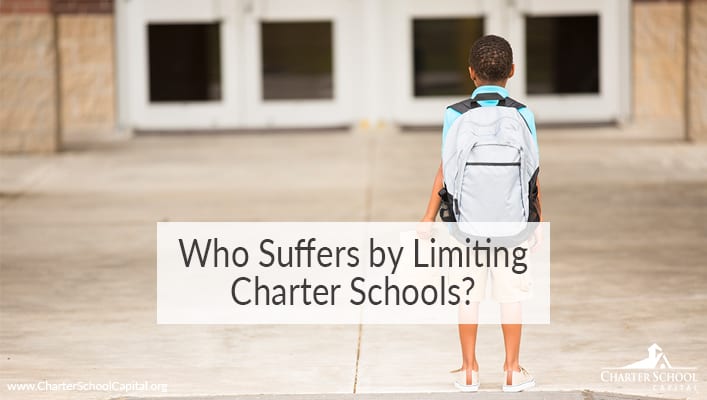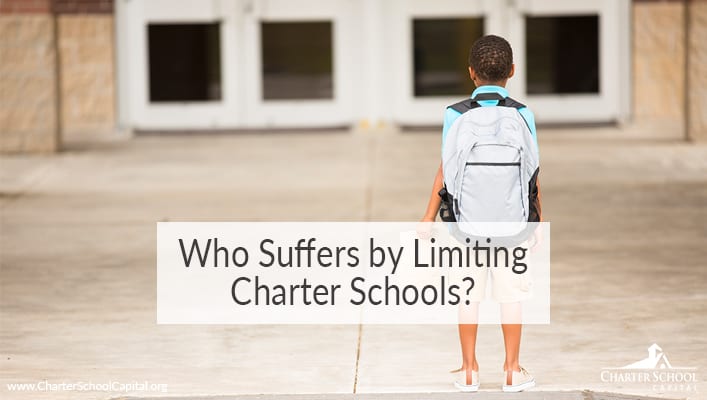Who Suffers by Limiting Charter Schools?
Editor’s Note: We wanted to share this story on charter schools by John Stossel and Maxim Lott that was posted here by Reason on September 10, 2019.
He shares the heartbreak of parents who wait year after year to see if their children have been selected for the charter school lotteries, and the disappointment that follows when they’re not.
They are frustrated with their local underperforming public schools but have little choice and few alternative educational opportunities for their children because the government is limiting charter schools, even though charters often do better than government-run schools with less funding.
When charter schools fail, they close. When traditional public schools fail, they stay open. There are an estimated five million students who would attend a charter school if they had the option.
Let Charter Schools Teach!
Many parents try to escape government-run schools for less-regulated “charter schools.”
Philadelphia mom Elaine Wells tells John Stossel that she wanted to get her boys into a charter because her local government-run school in inner-city Philadelphia was “horrible…there were fights after school every day.”
Her kids spent years losing lotteries that they hoped would get them into a charter.
“It’s heartbreaking,” Wells says.
In Philadelphia, thanks to government limits, only 7,000 kids get into charters. 29,000 apply.
But eventually, Wells got her kids into a new charter school: Boys’ Latin, founded by David Hardy.
Boys’ Latin does many unusual things. All kids learn Latin, wear uniforms, and stay longer hours—and it’s all-boys.
“The rules are there to set the stage for the students,” Hardy tells Stossel. “If the teacher can tell you to tuck in your shirt, they can tell you to be quiet in class…tell you to do your homework.”
Wells says that worked for her kids. “Before Boys Latin I would come home and say, ‘OK, I need you to read for an hour—read a book.’ And their response would be, ‘Why? What did we do?’ Like reading was a punishment! [After] Boys’ Latin…I would find books in the bathroom on the floor!”
Her son Ibrahim adds, “It came to the point where the teacher would tell our mom that I’d taken too many books.”
The school was better at hiring teachers who tried hard.
Wells recalls being shocked to find her sons talking to teachers at night: “He’s in his room and I hear him talking on the phone and it was 10 o’clock at night. I’m like, ‘Who are you on the phone with?’ and he was like, ‘Well, Mr. Bumbulsky told me to call him if I needed help with homework.'”
Stossel pushed back at some of David Hardy’s ideas, like making every student take four years of Latin. “It’s ridiculous. Nobody speaks Latin,” Stossel suggests to founder David Hardy.
“Well we picked Latin because it was hard,” Hardy replies.
“What’s the point of that?” Stossel asks.
“Because life is hard—to be prepared you have to work hard,” Hardy says. “We wanted to get that into the psyche of our students.”
Overall, Boys’ Latin gets somewhat better test scores than surrounding schools in most subjects.
“We deliver,” Hardy says. “Since the very first class we’ve sent more black boys to college than any high school in Pennsylvania.”
Despite that, government officials rejected his proposal to open a “Girls’ Latin” school. They’ve rejected a bunch of schools.
Opponents complain that charters “drain scarce resources” from government-run schools.
“You can’t tell me that,” Wells responds. “Every parent pays taxes…if I choose for my child to go to a charter school, then that’s where my taxes should go!”
In fact, Philadelphia and other cities don’t give charters the same amount of money they give to schools they control. Philadelphia gives them only 70 percent of that. So per student, Stossel notes, the government schools make money whenever a kid leaves for a charter. Over 13 years of schooling, Philadelphia saves $70,000 per kid.
Stossel asks Wells: What if those savings were passed onto the child?
“Absolutely! Give them the rest of the money!” Wells laughs.
But it won’t happen because, as Hardy notes, “It would also mean that there would be a whole lot less union jobs. The unions are not going to be for that.”
The views expressed in this video are solely those of John Stossel; his independent production company, Stossel Productions; and the people he interviews. The claims and opinions set forth in the video and accompanying text are not necessarily those of Reason.

